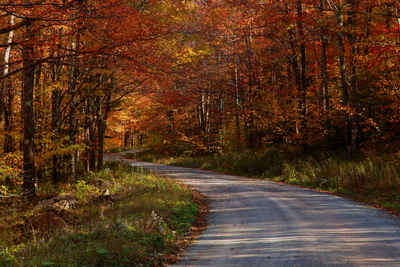West Virginia Counties
There are fifty-five counties in the state of West Virginia. Fifty of them existed at the time of the Wheeling Convention in 1861, before which West Virginia was part of the state of Virginia. The remaining five (Grant, Mineral, Lincoln, Summers and Mingo) were formed within the state after its admission to the United States on June 20, 1863. At that time, Berkeley County and Jefferson County, the two easternmost counties of West Virginia, refused to recognize their inclusion in the state. In March 1866, the US Congress passed a joint mandate assenting to their inclusion.Lincoln County, West Virginia
Lincoln County Education, Geography, and History

Lincoln County is a county located in the state of West Virginia. Based on the 2010 census, the population was 21,720. Its county seat is
Hamlin. The county was created in 1867 and named for Abraham Lincoln.
Lincoln County is part of the Huntington-Ashland, WV-KY-OH, Metropolitan Statistical Area, which is also included in the
Charleston-Huntington-Ashland, WV-OH-KY Combined Statistical Area.
Etymology - Origin of Lincoln County Name
In honor of Abraham Lincoln, 16th president
Demographics:
County QuickFacts: CensusBureau Quick Facts
Early History of Lincoln County, West Virginia
Lincoln County was created by an act of the West Virginia state legislature on February 23, 1867, from parts of Boone, Cabell, Kanawha and Putnam counties. The county was named in honor of President Abraham Lincoln (1809-1865), the 16th President of the United States (1861-1865). Historians regard him as America's greatest President.
Abraham Lincoln was born in Hardin County, Kentucky on February 12, 1809. Self-educated, he studied law and became an attorney. He began his political career in 1832 when he lost his first attempt to gain political office, losing a race for the Illinois state legislature. Refusing to give up, he ran again in 1834 and won and served in the state legislature until 1840. He later represented Illinois in the US House of Representatives (1847-1849) and twice ran for the US Senate. He lost both times. However, his seven debates with Stephen A. Douglas in 1858 concerning slavery and other issues of the day made his name a household word. It was during the 1858 campaign that Lincoln gave his famous "House Divided" speech. After his second defeat, he became active in the new political party, the Republicans. He won the presidential election of 1860 as the Republican party's nominee, with only 39 percent of the popular vote. The southern states, objecting to his anti-slavery views, seceded
from the Union, leading to the outbreak of the Civil War. He issued his famous Emancipation Proclamation on September 22, 1862 and his Gettysburg Address, delivered on November 19, 1863, is considered one of the most inspirational speeches in the nation's history:
Four score and seven years ago our fathers brought forth on this continent a new nation, conceived in liberty and dedicated to the proposition that all men are created equal. ...that we here highly resolve that these dead shall not have died in vain, that this nation under God shall have a new birth of freedom, and that government of the people, by the people, for the people shall not perish from the earth.
President Lincoln was shot by John Wilkes Booth while watching a play at Ford's Theatre in Washington, D.C. on April 14, 1865. He died the next day.
Jesse, John, David, William and Moses McComas were the first English settlers in Lincoln County. They cultivated 20 acres of corn, the first ever grown in the area, in 1799. Later that year, they returned to Virginia to get their families. Their families were initially left behind because it was not known if there were any Indians in the area, or if the soil would be suitable for cultivation. John Lucas, William Hinch and John Johnson soon joined the McComas' in the county. They built cabins in the county around 1800.
The is some debate concerning who the county seat, Hamlin, is named for. Some historians believe that the town was originally incorporated by the Virginia General Assembly in 1833 as Hamline, in honor of Bishop Leonidas L. Hamline of the Methodist Episcopal Church. A postmaster later dropped the final "e", claiming that Bishop Hamline had added the "e" to the family name. Others argue that the town was named in honor of Hannibal Hamlin, President Lincoln's Vice-President during his first Administration. It is difficult to determine which claim is correct, largely because most of the county's early records were destroyed when the county courthouse burnt to the ground in 1909.
The act creating the county provided that the county seat was to be built on the lands of Charles Lattin, now Hamlin. The land was originally an old brier field, cleared by David Stephenson who had patented the land and built a cabin on it in 1802. The land changed hands several times before being sold to Charles Lattin in the early 1860s. The first public building constructed on the land was the county jail, in 1867. Hamlin was made the permanent county seat by the state legislature on February 26, 1869.
Brigadier-General Charles E. "Chuck" Yeager, the famous test pilot who was the first to break the sound barrier (in 1947) and was featured in the film The Right Stuff, was born in Myra and grew up in Hamlin. A statute of him is located on the lawn of Hamlin High School.
Geography: Land and Water
As reported by the Census Bureau, the county has a total area of 439 square miles (1,140 km2), of which 437 square miles (1,130 km2) is land and 1.6 square miles (4.1 km2) (0.4%) is water.
Neighboring Counties
Bordering counties are as follows:
- Northeast: Putnam County; Kanawha County
- Northwest: Cabell County
- South: Mingo County
- Southeast: Boone County; Logan County
- West: Wayne County
Education







